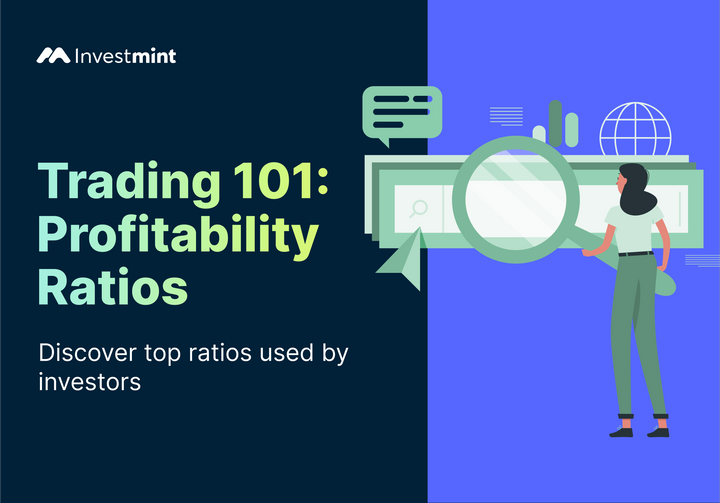Multibagger Stocks. Here’s Everything You Need to know
Discover the potential for exceptional returns with multibagger stocks. Gain the knowledge you need to take advantage of this opportunity right here.

Multibagger Returns
Investing in a multibagger stock and hitting the jackpot are not two different scenarios. The world of the stock market is an abundant place to make money. From consistent compounders to bulti baggers, multiple options can help you make money and create wealth.
So, if you are already intrigued, stay till the end as we break down what multi-bagger stocks are, what makes them different, how to find multi-bagger stocks in India and what you need to be careful about when considering them.
What Is a Multibagger Stock?
Multibagger stocks are those stocks whose value has increased by multiple fold over time. The term "multibagger" refers to the idea that these stocks have appreciated multiple times, thus bagging (multiplying) the original investment. The substantial increase in value brings considerable returns to the traders holding these stocks.
Example of a Multibagger Stock
Take the example of multi-bagger stocks in India =Eicher Motors Limited.
- In January 2009, Eicher Motors traded around Rs 300 per share.
- By July 2023, Eicher Motors was trading around Rs 3300 per share.
This means that if an investor had bought Eicher Motors shares in 2009 and held onto them until 2023, the value of their investment would have increased by approximately 11 times, making it an 11-bagger stock during this period.
How to Identify Multibagger Stocks?
Now that you know what multibagger stocks are, identifying a potential multi-bagger stock requires a combination of research, analysis, and understanding of market dynamics.
While there's no foolproof method to find a multibagger stock, here are some strategies you can consider when you are wondering how to find multi-bagger stock:
- Pick out the stocks of companies with solid financials, including consistent revenue growth, increasing profits, and healthy cash flows. Check if the company has a competitive advantage or unique offerings in its industry.
- Choose sectors with huge growth potential, as the stocks of those industries have a higher chance of turning into muti-bagger stocks.
- Look for businesses that can scale up efficiently as their products or services gain traction in the market. Scalability can drive exponential growth in revenues and profits.
- Analyse key financial ratios like price-to-earnings (P/E), price-to-sales (P/S), and debt-to-equity ratio. Compare these ratios to industry averages to assess if the stock is undervalued.
- Research the company's market share and its potential to capture more market share over time. Growing market share can lead to increased revenues and profits.
Investing in multi-baggers often requires a long-term perspective. Be patient and willing to hold onto the stock for an extended period to benefit from its growth potential.
Why Should You Invest in Multibagger Stocks?
This question answers itself once you understand the multi-bagger stocks. When considering investing long-term, multibagger stocks are one of the best stocks you can invest in. Multibagger stocks have a high potential to grow and produce exciting rewards.
If you have specific financial goals, such as retirement planning, buying a home, or funding education, the substantial gains from multi-bagger stocks could help you achieve these goals faster.
What Are the Risks Associated With Multibagger Stocks?
Investing in multibagger stocks can offer substantial rewards, but it also comes with various risks that investors should be aware of. Here are some of the critical risks associated with multi-bagger stocks:
- High Volatility: The price of multibagger stocks can move quickly, leading to potential gains and substantial losses. This price volatility poses huge risks for these stocks.
- Lack of Diversification: Focusing too heavily on a single multi-bagger stock can lead to concentration risk. Your entire investment portfolio could suffer if that stock underperforms or faces setbacks.
- Illiquidity: Some potential multibagger stocks may have lower trading volumes, making it challenging to buy or sell large quantities of shares without significantly impacting the stock price.
- Long-Term Commitment: To fully capture the potential gains of a multibagger stock, investors often need to hold onto the stock for an extended period. This ties up capital and may limit your ability to take advantage of other opportunities.
- False Positives: Not every high-potential stock will become a multi-bagger. Investors might mistake a promising stock for a multibagger candidate, leading to disappointment if the stock doesn't perform as expected.
- Lack of Dividends: Some multibagger stocks might not pay dividends, which means your returns depend solely on capital appreciation. This can impact your income stream from investments.
- Psychological Pressure: The desire for rapid gains from multi-bagger stocks can lead to emotional decision-making, such as panic selling during market downturns or holding on too long during a stock's decline.
Conclusion
Multibagger stocks present a compelling opportunity for stock traders. Characterised by their exceptional ability to deliver exponential returns over an extended period, long-term investors highly seek these stocks.
If you invest in the stock market for long-term benefits, then finding and investing in multi-bagger stocks might be worth considering.
Frequently Asked Questions (FAQs)
Q. Which stocks can turn multibagger?
Identifying potential multibagger stocks involves looking for companies with solid growth prospects, innovative products, competitive advantages, and effective management teams.
Q. Is investing in multibagger stocks risky?
Investing in a multi-bagger stock can go both ways. So, it is always suggested to be thoughtful and diversify your investments to minimize risks.
Q. Are multibagger stocks and penny stocks the same?
No, both are different. Multibagger stocks are typically established companies with strong growth potential that can generate substantial returns over time. Penny stocks are shares of companies with low market capitalization and often trade at a low price per share, typically below a certain threshold (Rs50).
Checkout more interesting reads on our blog





